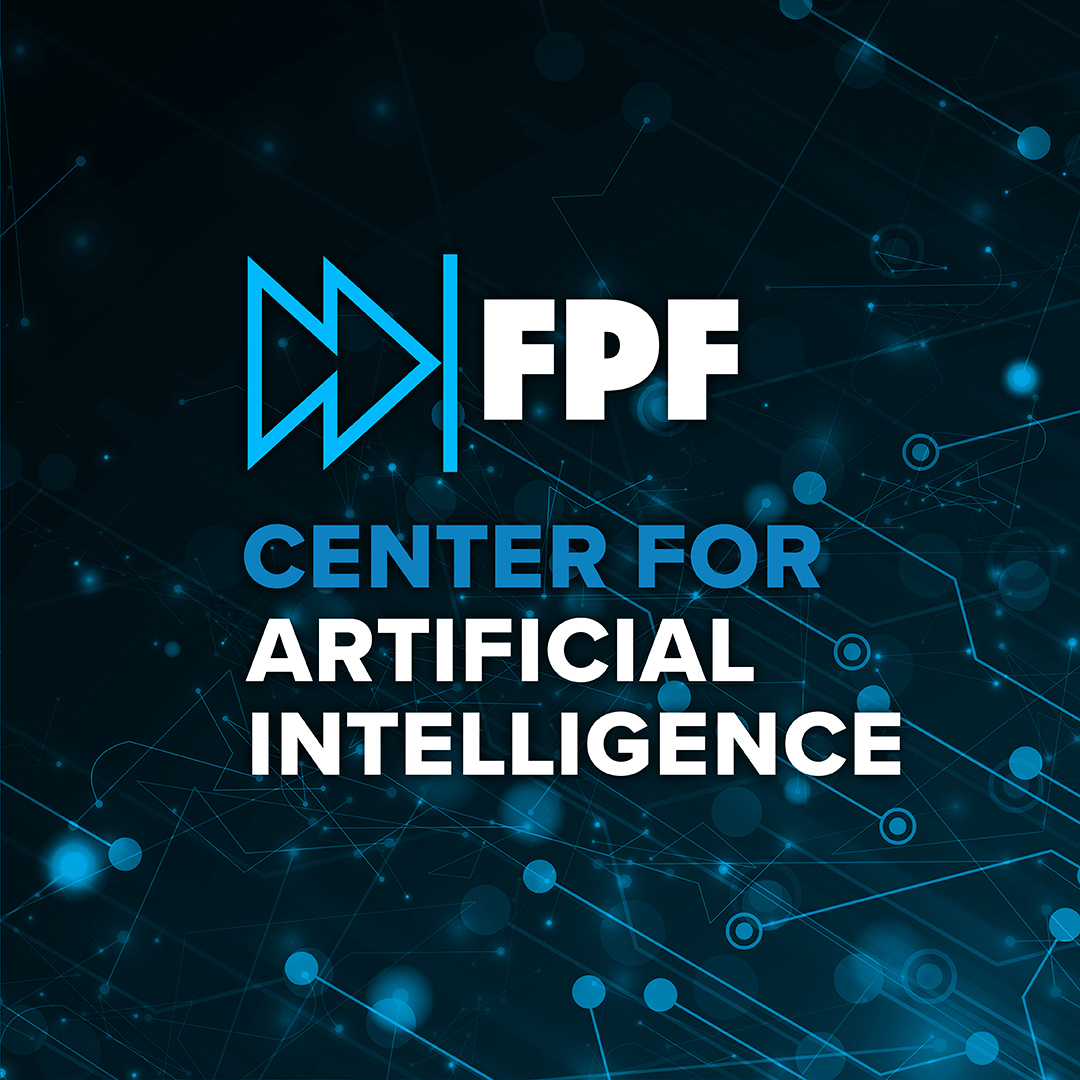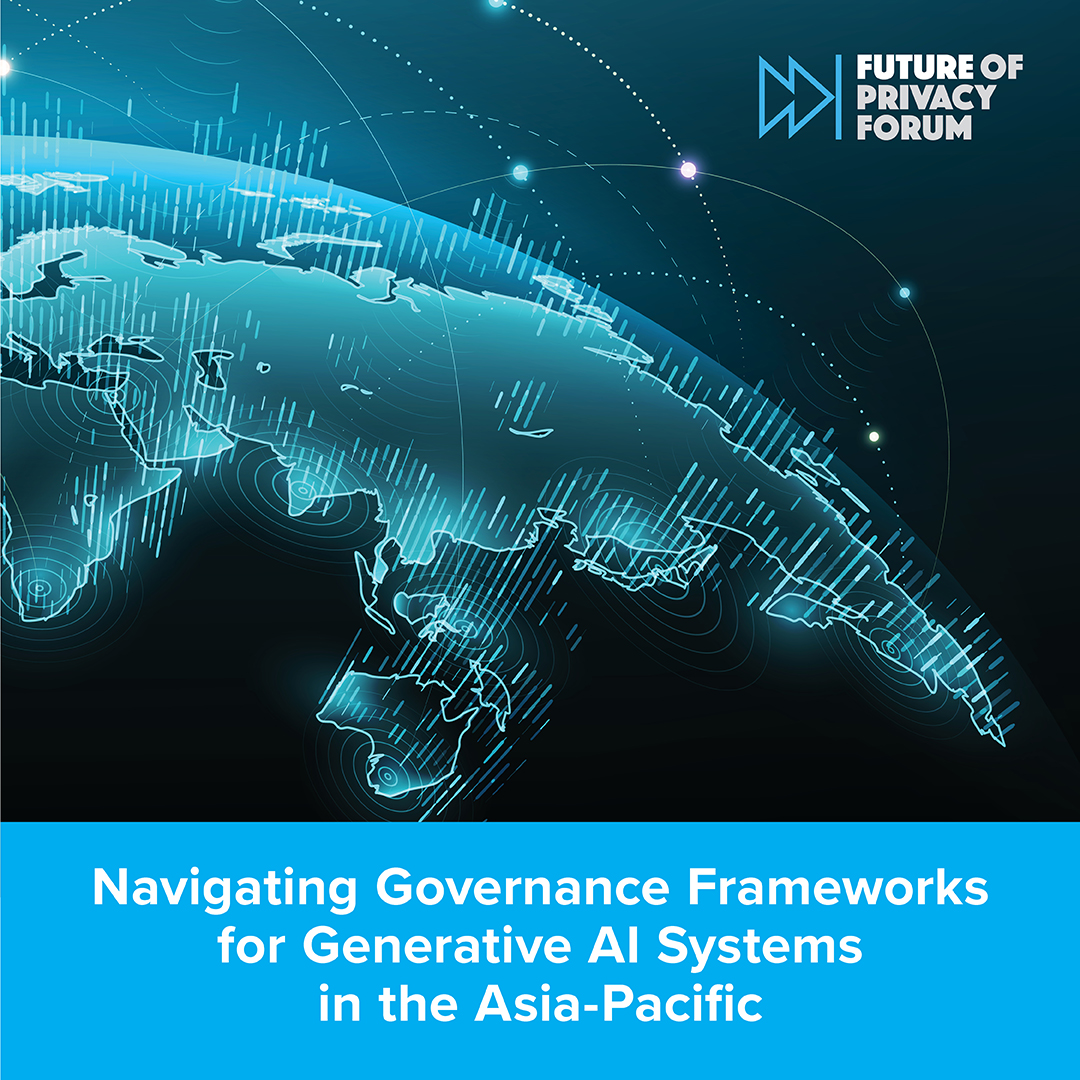
Global
FPF is Working Alongside Stakeholders Worldwide on Ways to Improve Data protection AND EMERGING Frameworks. FPF closely follows developments in policymaking and regulation throughout Europe, Africa, the Asia-Pacific, India, Israel, and Latin America. We keep our stakeholders informed of relevant changes, case-law, guidance, policies, and legal requirements, while also providing background and in-depth analysis in […]

Newly Updated Guidance: FPF Releases Updates to the Generative AI Internal Policy Considerations Resource to Provide New Key Lessons For Practitioners
Today, the Future of Privacy Forum (FPF) Center for Artificial Intelligence is releasing a newly updated version of our Generative AI internal compliance document – Generative AI for Organizational Use: Internal Policy Considerations, with new content addressing organizations’ ongoing responsibilities, specific concerns (e.g., high-risk uses), and lessons taken from recent regulatory enforcement related to these technologies. […]

Future of Privacy Forum Launches the FPF Center for Artificial Intelligence
The FPF Center for Artificial Intelligence will serve as a catalyst for AI policy and compliance leadership globally, advancing responsible data and AI practices for public and private stakeholders Today, the Future of Privacy Forum (FPF) launched the FPF Center for Artificial Intelligence, established to better serve policymakers, companies, non-profit organizations, civil society, and academics […]

Private Event: Future of Privacy Forum’s Inaugural Privacy Executives Summit
You are invited to attend the inaugural FPF Privacy Executives Summit taking place in Berkeley, California on September 11-12, 2024 at the Claremont Hotel & Spa. For those traveling, the Claremont Hotel is a 24-minute drive from Oakland International Airport and 45-minutes from San Francisco International Airport. This year FPF expanded the Privacy Executives Network […]

Peak Privacy: Vermont’s Summit on Data Privacy
On June 13, 2024, Governor Phil Scott vetoed H. 121. This marked the first governor veto of a comprehensive privacy bill passed by the state legislature. Immediately prior to the close of the state legislative session on May 10, 2024, the Vermont legislature passed H. 121, “An act relating to enhancing consumer privacy and the […]

New Report Examines Generative AI Governance Frameworks Across the Asia-Pacific Region
May 23, 2024 — Future of Privacy Forum today announced the launch of a comprehensive report, “Navigating Governance Frameworks for Generative AI Systems in the Asia-Pacific.” This report examines the current state of governance frameworks for generative AI systems in five countries in the Asia-Pacific (APAC) region: Australia, China, Japan, Singapore, and South Korea. The […]

The North Star State Joins the State Privacy Law Constellation
On May 19, 2024, the Minnesota Legislature passed HF 4757, an omnibus budget bill that includes the Minnesota Consumer Data Privacy Act (MNCDPA). The bill now heads to Governor Walz for signature. Developed by State Representative Steve Elkins over nearly five years and multiple legislative sessions, the MNCDPA is among the strongest iterations of the […]

Little Users, Big Protections: Colorado and Virginia pass laws focused on kids privacy
‘Don’t call me kid, don’t call me baby’ – unless you are a child residing in either Colorado or Virginia, where children will soon have increased privacy protections due to recent advances in youth privacy legislation. Virginia and Colorado both have broad-based privacy laws already in effect. During the 2024 state legislative sessions, both states […]

Colorado Enacts First Comprehensive U.S. Law Governing Artificial Intelligence Systems
On May 17, Governor Polis signed the Colorado AI Act (CAIA) (SB-205) into law, establishing new individual rights and protections with respect to high-risk artificial intelligence systems. Building off the work of existing best practices and prior legislative efforts, the CAIA is the first comprehensive United States law to explicitly establish guardrails against discriminatory outcomes […]
